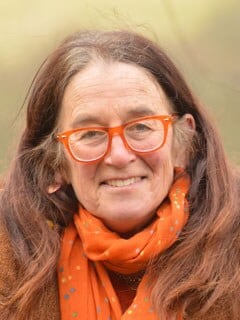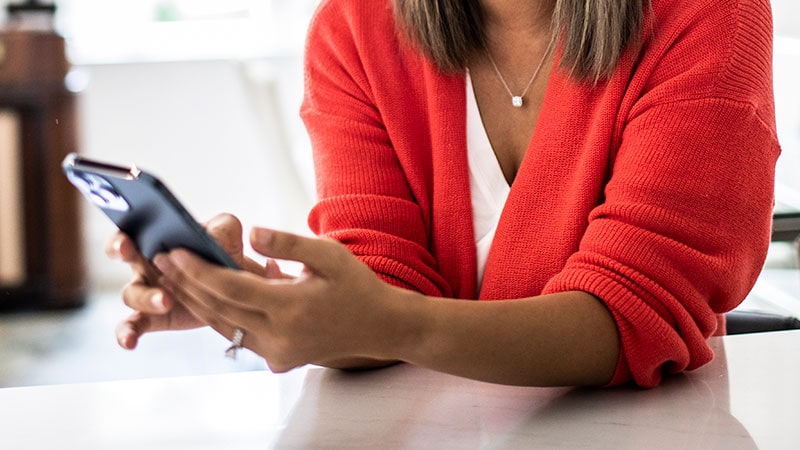Retired GP Dr Lesley Morrison is offering emotional coping tips to help clinicians on the COVID-19 front line in her new book The Wellbeing Toolkit for Doctors that's being published next month.

Dr Morrison says she's been thinking of writing it for years, based on her experiences as a GP in Hackney, London, the Scottish Borders, and as a tutor at Edinburgh University. The project was accelerated by her knowledge of the struggles doctors were facing on the COVID front line. "There are times when you may feel overwhelmed, when it seems that you're unable to do anything useful to help the person sitting in front of you," Dr Morrison acknowledges. "But there are nearly always ways in which you can reclaim some control."
In 33 short chapters, she gives practical tips drawn from her own experience and that of doctor colleagues from all over the world, on everything from openness about dying and compassion, the need to combat racism, the importance of a welcoming environment in the consulting room, and finishing with a personal wellbeing toolkit complete with resources.
Underpinning it is the importance of compassion and good communication even though this can be challenging at a time when military-style language like 'shielding', 'lockdown', and 'frontline' dominate.
After her medical degree at Aberdeen University, Dr Morrison did her pre-registration year in New York City, which triggered her life-long interest in the social determinants of health and in public health. From 1998 she worked as a GP partner in Hawick with responsibility for medical student teaching, until her retirement in 2014.
Passionate about disarmament and health professionals' roles in the climate crisis, she is on the board of the charity Medact, and coordinator of Medact Scotland. She also chairs her local sustainability group Tweedgreen, and is a member of Doctors for Extinction Rebellion. She also collects stories.
She spoke to Medscape UK.
Q&A
What's your emergency advice for the doctor who has hit the mental buffers in the middle of a shift, and feels they might not make it to the end?
You need to have something up your sleeve. The Three-Minute Breathing Space is roughly a minute in length. Sit up tall and soften your eyes until they close. Begin to tune in to your breath.
- Notice what is in your body and mind.
- Focus on the breath and its rhythm in your body.
- Notice the body - by widening the focus to include the whole body, and any physical sensations you may find.
If you feel able to, tell someone you're finding life difficult. If not, write it down. Carry a little diary in which you put down the way you are feeling. The process of doing that can be affirming.
What spurred you to write a book specially aimed at doctors?
As doctors, we deal in stories - we use science to interpret and act on the stories. I've always had my 'black book' to hand in which I jot down the anecdotes that patients and colleagues tell me. Since 2014 I've co-edited a book of poetry given to all new Scottish medical graduates to give them emotional support (Tools of the Trade). Stories are such a powerful way to convey a message so when COVID struck - and I could see the pressure colleagues in the NHS were under - there seemed no excuse not to do it. I had actually had the idea accepted for publication before COVID happened.
We know that doctors are not good at self-care, why is that important in the middle of a pandemic?
In all walks of life you have to look after yourself to look after others, and doctors even more so. They need to feel well in a real holistic sense in order to be able to offer real support to others. I talk about compassion and self-compassion in the book. The pandemic has confirmed just how important those aspects of care are, and the NHS hierarchies, which were previously very stifling, have begun to flatten. Tiredness, exhaustion, and unsympathetic rotas are a drain on people's emotional energy and compassion.
Three years ago, as part of my SSC (special study component) teaching with first year medical students, we asked students to grade their level for compassion whilst undergraduates and then after a year in medical school. Many felt they had expressed their compassion less since becoming medical students. The need to ensure that compassion is an integral part of care is one of the reasons that the Global Compassion Initiative has been set up at Edinburgh University. It can easily be squashed out of individuals.
You are a strong advocate of the power of artistic expression for doctors. Is there room for it during COVID?
Definitely - it is about putting yourself in someone's shoes, not just following a formula that says 'Patient X has Y so do Z'. Look at the patient and ask yourself what that person really needs, what will improve the quality of their life. For some it might be access to music, for others a phone call, whilst some would relish the opportunity to garden. Ask yourself what it is like to be a patient in the middle of this dire illness?
Protocols are safety nets to make sure things are not missed, but when COVID came the pressure of work was so intense that people had to devise imaginative ways of coping, and barriers to change that had previously been problematic suddenly dissolved.
Being creative is also an important part of wellbeing. It is about not feeling robotic but giving of yourself in a role with the freedom to interpret rules and to use your instincts about what is right in certain situations.
Creativity can also be a great way to relieve stress. One of the best things I ever did - with the possible exception of getting married and having children - was to join a community choir, even though I was told at the age of 6 that I could not sing. The sense of connection and liberation is extraordinary.
With the fear of a third wave of the pandemic, what pieces of imaginary equipment should doctors take into work with them from the toolkit you've supplied to avoid burnout?
I would say make time to make the day your own, by starting the day with your own ritual. For me it is getting up early and taking a cup of coffee out of doors - whatever the conditions - and feeling grounded and that this is my day. That is particularly important if you have children or dependents.
Another 'piece of kit' is emotional honesty. Some days you have to accept that you do not feel great and will not be as good a doctor as you want to be. The trick is to recognise when you need help.
Is the NHS and government going to have to take the issue of staff burnout more seriously in the future?
Yes - in huge neon lights.
The awareness of the stresses that doctors work under has been highlighted by COVID as never before, and we need to learn from those lessons. We need to develop more sympathetic working conditions. The issue of junior doctors being dispatched to parts of the country for training separated from partners needs to be looked at, and support networks need to be addressed. Tick box appraisals have gone past their sell-by dates. Psychologists need to be much more involved with keeping staff healthy, particularly in high pressure areas of work. We need to prioritise looking after our healthcare professionals so that they can better look after others.
The Wellbeing Toolkit for Doctors, Watkins Media ISBN-13: 9781786785213




